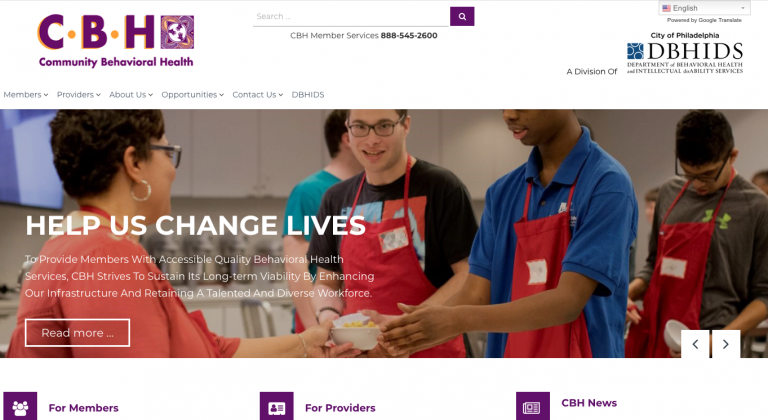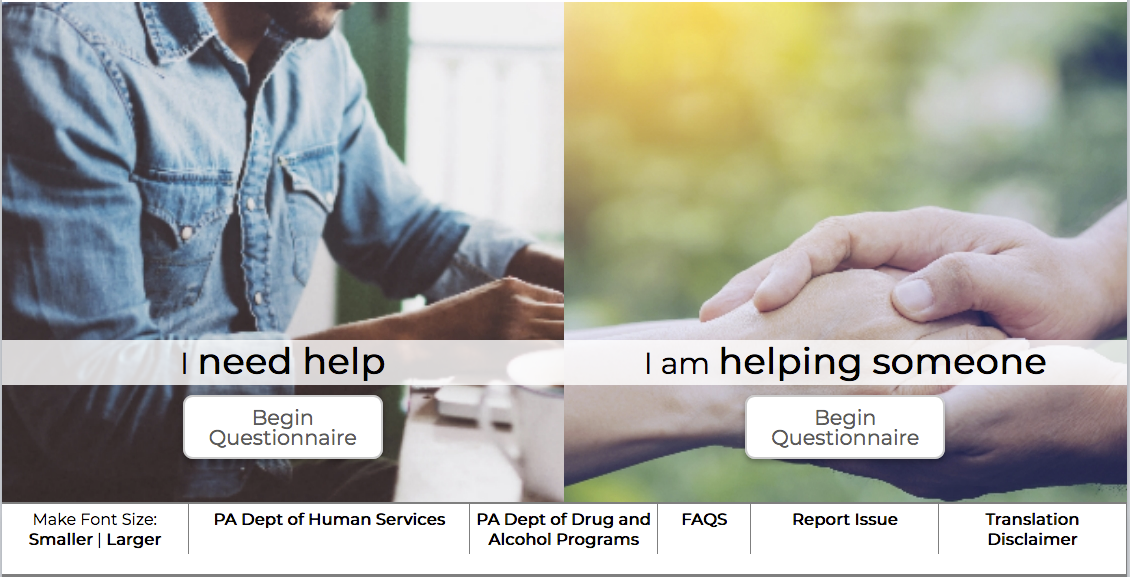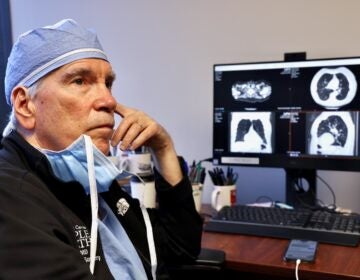New websites offer online resources for addiction treatment in Philly and beyond
Philadelphia has launched a new website where people receiving Medicaid benefits can find information about behavioral health and addiction treatment.

Philadelphia's Department of Behavioral Health has launched a new website (www.cbhphilly.org)
The City of Philadelphia has launched a new website where people receiving Medicaid benefits can find information about their behavioral health and addiction treatment coverage.
The new website, cbhphilly.org, creates an online home for Community Behavioral Health, the city’s network of publicly funded behavioral health and addiction treatment providers.
It’s one of two new online resources that can help people in the region seeking information about addiction treatment. The site launched on the same day as a drug and alcohol treatment referral tool created by state health and human service agencies. It features an anonymous questionnaire that points Pennsylvanians to local providers, social services, and information about benefits.
Over 700,000 Philadelphians are eligible for benefits from Community Behavioral Health, but until now, the network’s web presence was embedded within the site for the city’s Department of Behavioral Health and Intellectual disAbility Services.
Department commissioner David T. Jones said the number of Philadelphians who would qualify for the benefits has been growing since Pennsylvania expanded Medicaid coverage under the Affordable Care Act.
“As we see the numbers continue to grow, we want to make sure […] those new enrollees have access to all of the benefits information they would need,” Jones said.
Jones said the new site is similar to the online homes for other health plans, making it easier to find out what types of treatment services are covered and locations for the 175 providers in the network.
Some new enrollees may not even be aware their Medicaid coverage entitles them to these benefits, said Joel Avery, a DBHIDS spokesman. Avery said the new site would help make Community Behavioral Health a more familiar name and clarify its affiliation with the city’s public treatment system.
He said the website could even help build trust when DBHIDS outreach workers encounter homeless people struggling with addiction. Even people living under bridges in places like Kensington, Avery said, “have the same iPhones we have,” and use them to visit websites that outreach workers refer them to.
“When they can just go on their phone and substantiate everything the outreach worker has told them, it goes a long way,” Avery said.
Jones said that Community Behavioral Health’s new site also provides information about treatments that have proven to be most effective, such as medication-assisted treatment for opioid addiction.
While the treatment resources on the city’s new site are meant specifically for people who have Medicaid in Philadelphia, Pennsylvania’s new online referral tool directs anyone interested in getting help for an addiction for themselves or a loved one to a wide range of services in communities statewide.
It’s available at ddap.pa.gov/GetHelp.

After answering a few basic questions, including whether the person needs supportive services such as transportation and housing, respondents are shown a chart that outlines organizations in their area that provide the services they need, with links to websites where they can get additional information.
Jennifer Smith, Secretary of the state’s Department of Drug and Alcohol Programs, said the tool responds to concerns “from citizens who said ‘we don’t know how to get help, for ourselves, or for our loved ones who are suffering from substance use disorders.’”
Listed at the top of the chart generated when people use the tool is the state’s hotline for finding a drug and alcohol treatment provider: 1-800-622-HELP. There’s also a link people can use to talk with a hotline operator via text message.
WHYY is your source for fact-based, in-depth journalism and information. As a nonprofit organization, we rely on financial support from readers like you. Please give today.





